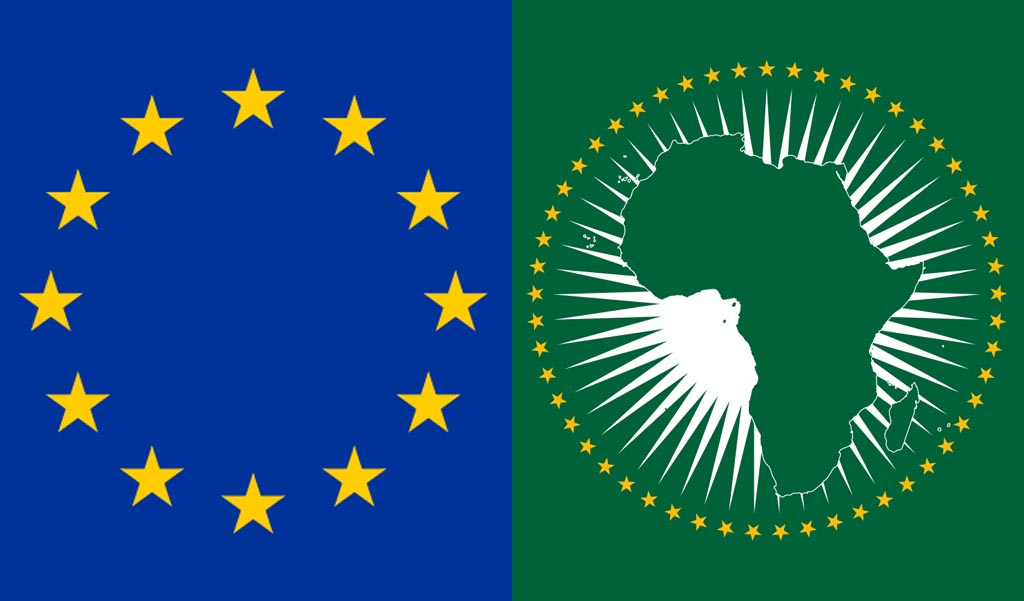By: UKOM
Op-Ed by Minister of Foreign Affairs of the Republic of Slovenia Dr Anže Logar, Federal Minister for Foreign Affairs of the Federal Republic of Germany Heiko Maas, Minister of State and for Foreign Affairs of the Portuguese Republic Dr Augusto Santos Silva and Minister for Europe and Foreign Affairs of France Jean-Yves Le Drian.
On 26 October, foreign affairs ministers of the European Union and the African Union will gather in Kigali for the first AU-EU ministerial meeting since the onset of the COVID-19 pandemic. This gathering is of particular importance, as it will set the stage for the next AU-EU Summit in 2022.
Both events underscore the relevance of the EU-Africa Partnership as a key priority of our foreign policies. It is not only geography that makes Europe and Africa natural allies. Both continents share a deep attachment to the principles of multilateralism, international cooperation and the rules-based international order. Our political, economic and social futures are bound together.
The pandemic was another reminder that we must work together to build our common future. For this, we must take into account the enhanced political, security and economic role of the African continent, tied with the responsibility to promote inclusive and sustainable economic growth to secure perspectives for its young populations. In order to achieve this, investing in people – in quality education, skills development and access to decent work, is an essential part of our common endeavours. Particular attention should be given to investing in women’s and girls’ education, health, and economic opportunities, which are fundamental to realising the continent’s human capital
Both continents are benefiting from a rules-based global order and from regional integration. They are also benefiting from the digital transformation and understand the importance of making it cyber-resilient and human-centric.
With its huge potential for renewable energies and its rich biodiversity, we count on Africa to become a key partner in the pursuit of a more sustainable world, in line with the United Nations´ Sustainable Development Goals and the African Unions´ Agenda 2063. The Green Transition should not be regarded as a hindrance but as the cornerstone of cleaner and more sustainable economic growth, enhancing connectivity and generating new and better jobs for the youth of Africa and Europe, while addressing important global challenges of climate change and the scarcity of natural resources, particularly water.
We take note that other global players have rightfully realised the continent’s considerable economic and geostrategic importance. Europe remains by far Africa’s main trading partner, largest investor and its most dependable ally in the pursuit of peace and security. We should build on this partnership and deepen our cooperation in a spirit of even greater equality, solidarity and mutual respect.
The meeting of the Foreign Ministers of the African and European Unions will address all these issues, as will the forthcoming Europe-Africa Summit. It will be an opportunity to acknowledge the road trodden together thus far and address the common challenges and opportunities ahead.
The three consecutive Presidencies of the Council of the European Union by Germany, Portugal and Slovenia and the upcoming one by France have strongly supported the vision of a renewed and mutually reinforcing political partnership between Africa and Europe, one which sets new roles on both sides.
Taking to heart the European Commission’s proposal for a “Comprehensive Strategy with Africa”, in a concerted effort as “Team Europe”, the EU and its member states have endeavoured to expand a global mechanism for the fair distribution of COVID-19 vaccines, tests and treatments and bolstering African healthcare systems through supporting the manufacturing of vaccines in Africa.
We have also approved an ambitious new set of instruments such as the European Peace Facility (EPF) and the Neighbourhood, Development and International Cooperation Instrument (NDICI), providing the EU with an improved toolkit to use in our work alongside our African partners in the fields of peace, security, good governance, global challenges and sustainable development.
Moreover, throughout the last year and a half, we have undertaken various initiatives related to debt relief and the promotion of further investments and financing for the continent, be it through the G20 Compact with Africa, hosted by Germany in August, the High-Level EU-Africa Green Investment Forum, co-hosted by Portugal and the EIB in April, or the Summit on the Financing of African Economies, hosted by France in May. Through these initiatives, we have sought to create building blocks for the next Summit, which should guide the EU-Africa Partnership’s efforts to advance a truly sustainable post-COVID recovery. Further supporting the gradual implementation of the African Union Continental Free-trade Area will be another milestone to this effect.
As the 6th EU-AU Summit draws near, it is time to strengthen our ambition to put a deeper and more substantive common agenda into practice. The Summit will also be an opportunity to explore the synergies and linkages with the new framework for cooperation with the African, Caribbean and Pacific States, as envisioned in the Post-Cotonou Agreement.
We are not only united by common strategic interests but also bound together by the vision of a partnership that benefits people on both continents. The pandemic has shown how closely our fates are intertwined. Making use of this experience creates an unrivalled opportunity – for Africa and for Europe.

